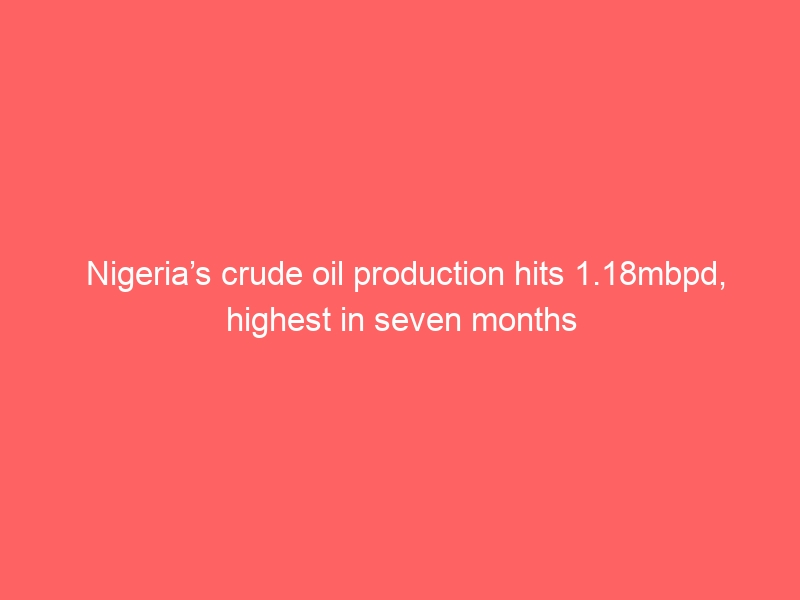Nigeria’s crude oil production hits 1.18mbpd, highest in seven months
Nigeria’s crude oil production rose to 1.185 million barrels per day in November 2022, representing the highest output by the country in the past seven months.
Latest oil production figures obtained from the Nigerian Upstream Petroleum Regulatory Commission on Sunday showed that the country’s output increased by 171,119 barrels per day in November when compared to what was recorded in the preceding month.
This came as the Organisation of Petroleum Exporting Countries announced on Sunday that the Document of Cooperation between the cartel and non-OPEC members had stabilised the oil market.
ALSO READ: Tompolo’s Pipeline Surveillance Contract: The Journey So Far
Data sourced by our correspondent from the upstream regulator indicated Nigeria’s crude oil production in October 2022 was 1.014m barrels per day, but this moved up to 1.186mbpd in November.
The last time Nigeria’s crude oil production crossed this figure was in April 2022 when the country pumped 1.219mbpd of crude, outside blended and unblended condensates.
Further analysis of data from the regulator showed that the country’s crude oil output in May, June, July, August and September was 1,024,317bpd; 1,158,274bpd; 1,083,899bpd; 972,394bpd, and 937,766bpd respectively.
Nigeria’s oil production had been crashing since 2021 following massive oil theft in the Niger Delta region, a development that denied the country billions of dollars in revenue.
However, in the past few months, the Federal Government has intensified efforts to check the menace of oil theft. The Nigerian National Petroleum Company Limited, in partnership with security agencies and private contractors, has deployed measures to tackle the challenge.
These measures seem to be paying off, as oil production increased consecutively in the months of October and November 2022.
On the stability of the global oil market, OPEC Secretary-General, Haitham Al Ghais, said in a statement that the Declaration of Cooperation by the cartel and its allies had been on for six years, noting that it had also helped in securing global energy security.
The DoC, which was signed by 23 oil producing countries, aims to secure sustainable oil market stability through cooperation and dialogue for the benefit of all producers, consumers and investors.
Al Ghais said, “The Declaration of Cooperation is an unprecedented collaborative framework of 23 oil-producing countries that is based on trust, mutual respect and dialogue.
“Six years later, the framework continues to play an instrumental role in supporting market stability, which is essential for growth and development, as well as attracting the necessary investment to ensure energy security.”
He noted that the commitment of the DoC participants to a stable oil market was once again evident, following the severe oil market contraction caused by the COVID-19 pandemic.
On December 10, 2016, OPEC member countries and Azerbaijan; the Kingdom of Bahrain; Brunei; Darussalam; Equatorial Guinea, which later joined OPEC; Kazakhstan; Malaysia; Mexico; Sultanate of Oman; Russian Federation; Republic of Sudan; and Republic of South Sudan, met at the OPEC headquarters in Vienna.
They decided to establish the DoC as a platform for cooperation and dialogue in the interest of oil market stability. Other producers attended the meeting in support of these extraordinary efforts.












